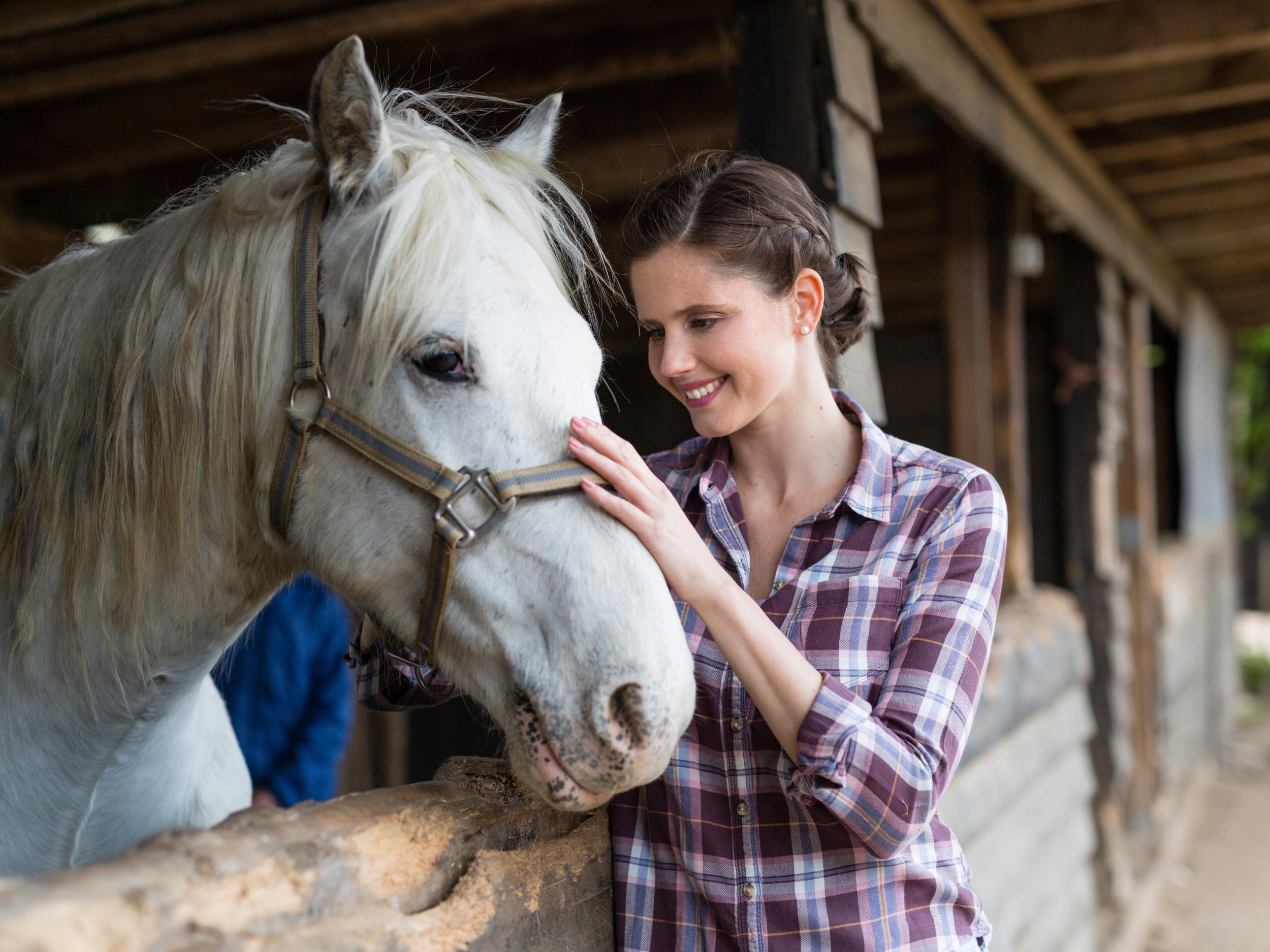Horses can read human emotions, study finds
Previous research has shown the animals can recognise different moods

Horses can read human facial expressions and remember a person’s mood, a study has shown.
The animals respond more positively to people they have previously seen smiling and are wary of those they recall frowning, scientists found.
The findings build on previous research which suggested horses could recognise emotions from reading human faces.
Now, scientists say they have found the animals can not only pick up on a person’s mood but have a “memory for emotion” that guides their future interactions with an individual.
“What we’ve found is that horses can not only read human facial expressions but they can also remember a person’s previous emotional state when they meet them later that day – and, crucially, that they adapt their behaviour accordingly,” said Karen McComb, a lead author of the study and a professor of animal behaviour at the University of Sussex.
“Essentially horses have a memory for emotion,” she added.
The researchers showed 21 domestic horses a photograph of a human model, displaying either an angry or happy face. Several hours later, they were presented with the same person in the flesh sporting an “emotionally neutral” expression.
The earlier short-term exposure to the photograph was enough to generate clear differences in their responses.
Horses which had been presented with a picture of an angry model spent longer viewing them in the flesh with their left eye, which sends information to the right brain hemisphere, where potential threats are processed. Those which had been shown a happy model gazed for longer with their right eye, which is linked to the part of the brain specialised for more positive reactions.
“We know that horses are socially intelligent animals, but this is the first time any mammal has been shown to have this particular ability,” said Leanne Proops, co-lead author and a senior lecturer in animal behaviour at the University of Portsmouth.
“What’s very striking is that this happened after just briefly viewing a photograph of the person with a particular emotional expression – they did not have a strongly positive or negative experience with the person.”
Crucially, the human participants in the study did not know which of their pictures the horses had been shown, avoiding the risk of them giving off subconscious signals.
The researchers said their findings, published in the journal Current Biology, could help people bond with horses and avoid aggressive behaviours.
In 2015, Sussex researchers compiled a “dictionary” of horse facial expressions. They said the animals had a “rich repertoire of complex facial movements”, many of which were similar to those of humans.
Last year further research suggested horses could read human body language, even when they did not know the person.
Join our commenting forum
Join thought-provoking conversations, follow other Independent readers and see their replies
Comments
Bookmark popover
Removed from bookmarks